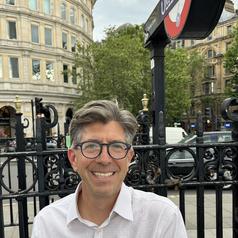
Blaine Greteman
Professor and Chair of English, University of Iowa
My teaching and research focus on early modern book history, poetry, and drama, including Milton and Shakespeare. After leaving Oxford, where I attended on a Rhodes Scholarship, I became a writer for Time magazine, and I also continue to write for popular publications such as Slate, The Week, and The London Review of Books, while teaching classes in creative nonfiction and the essay. My most recent book is "Networking Print in Shakespeare's England (Stanford, 2021).
Less ![]()

Blair Aitken
Postdoctoral Research Fellow in Psychopharmacology, Swinburne University of Technology
Blair Aitken is a Postdoctoral Research Fellow at Swinburne University of Technology and a member of the International Council on Alcohol, Drugs and Traffic Safety (ICADTS) Special Interest Group for ‘Driver State Monitoring Systems.’ Dr. Aitken’s research investigates the impact of recreational drugs and commonly prescribed medications on cognition, driving performance, and associated ocular behavior. His current work leverages advanced eye-tracking technology to identify novel real-time indicators of drug-induced driving impairment.
Less ![]()
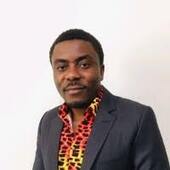
Blaise Manga Enuh
Postdoctoral Research Associate in Microbial Genomics and Systems Biology, University of Wisconsin-Madison
Less ![]()
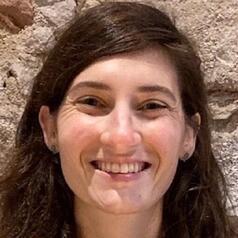
Blake Erhardt-Ohren
DrPH Candidate, University of California, Berkeley
Blake Erhardt-Ohren is a global health practitioner with ten years of experience in sexual and reproductive health and population dynamics.
Less ![]()
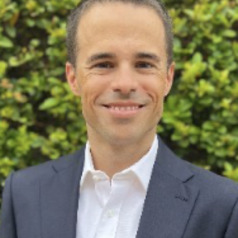
Blake Lawrence
Lecturer, Curtin School of Population Health, Curtin University
Blake Lawrence (PhD) is a Lecturer & Researcher in obesity, weight stigma and childhood adversity.
Less ![]()
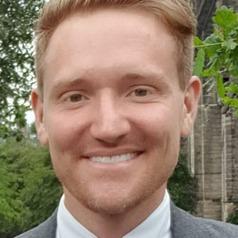
Blake Morton
Lecturer of Animal Psychology, University of Hull
Formally trained in zoology and psychology, Dr Morton is a university lecturer specialising in animal psychology and wildlife conservation. Since 2018, he has been studying the behaviour and problem-solving abilities of wild carnivores, particularly in the United Kingdom. The primary goals of his research are to understand what factors drive behavioural adaptability in animals, and how this impacts human attitudes and behaviour towards nature in an ever-changing world.
Dr Morton's research is published in world-leading journals for animal behaviour and cognition, and his work attracts major global media attention, including the BBC, The Guardian, TIME, and National Geographic. He has obtained over £530,000 in grants as a P.I. and co-investigator, including NERC and the prestigious Newton Fund, and was awarded a ‘Research Excellence Award’ from the University of Hull in 2022. He is the founder and co-director of the recently-established Hull Animal Behaviour Centre, which is comprised of research programmes from over 7 countries, and he is the convenor of the Behaviour & Ecology Research Group at the University of Hull. He is currently an associate editor for Royal Society Publishing, and is a member of the Scientific Advisory Group of the UK's national Badger Trust.
Less ![]()
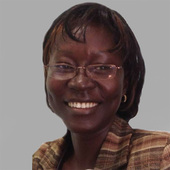
Blandine Marie Ivette Nacoulma
Lecturer and Researcher in Botany and Phyto-Ecology, Université Joseph Ki-Zerbo
Less ![]()
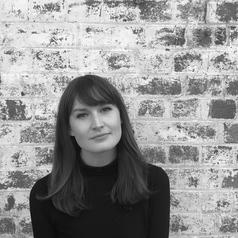
Blythe Worthy
Adjunct assistant professor, University of Sydney
Blythe Worthy is an academic at the University of Sydney.
Less ![]()
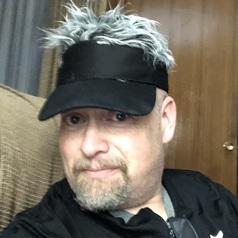
Bob Barnetson
Professor of Labour Relations, Athabasca University
Bob Barnetson is a professor of labour relations at Athabasca University. His research focuses on the political economy of workplace regulation in Alberta with specific attention to occupational injury, child labour and farm worker rights.
Less ![]()
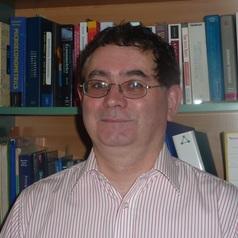
Bob Baulch
Professor of Economics, RMIT University Vietnam
Bob is a professor of economics in the School of Business and Management at RMIT University Vietnam's South Saigon Campus. He was trained at the universities of Oxford (undergrad), Sussex (masters) and Stanford (doctorate) and has worked in 23 countries in Africa, Asia and the Pacific. He has worked for the Asian Development Bank, International Food Policy Research Institute, Natural Resources Institute, University of Sussex, Vietnam Academy of Social Sciences and World Bank, as well as RMIT University Vietnam. He also has been a manager for a community interest company and he ran his own successful economic consultancy company. For Bob's publications and research interests, please see his Google Scholar and ORCID links.
Less ![]()
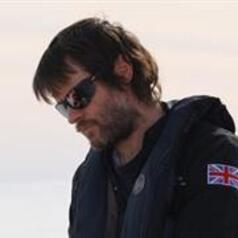
Bob Brewin
Associate Professor, Earth & Environmental Science, University of Exeter
After completing my PhD in marine remote sensing at the University of Plymouth, I worked for eight years as a marine scientist in the remote sensing group at Plymouth Marine Laboratory and for the UK National Centre for Earth Observation. I joined the University of Exeter in 2019 as a lecturer. I am a satellite oceanographer with a keen interest in phytoplankton, optics and citizen science.
My research focuses primarily on the use of satellite data for understanding marine biogeochemistry. My interests include: marine optics, marine primary production, marine ecology, bio-optical modelling, and developing algorithms for remote-sensing of phytoplankton groups. I am also interested in using citizen science to expand observations of key environmental indicators, such as water temperature and water quality, in under-sampled regions. I work at global and regional scales, spanning a range of aquatic ecosystems from the lakes to the open ocean, and from tropical to polar waters. I love to spend time in the field.
Less ![]()

Bob Buresh
Professor of Exercise Science, and Director of the Exercise Physiology Lab, Kennesaw State University
After 30 years working as a broadcast technician at the ABC affiliate in Omaha, I completed my doctoral degree and moved to north Georgia to embark full-time on a career in academia, teaching and studying connections between physical activity and health outcomes. My current research focuses on examining the effects of various forms of exercise on clinical status in adults with type 2 diabetes, and on the influences of physical activity on weight and cardiometabolic risk management in adults.
Less ![]()
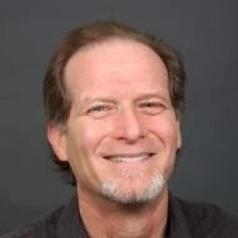
Bob Bussel
Professor Emeritus of History and Labor Education, University of Oregon
Bob Bussel is a Professor Emeritus of History and the former director of the Labor Education and Research Center (LERC) at the University of Oregon.
Bussel has spent over five decades working with and researching the union movement, including 10 years on the staff of the Amalgamated Clothing and Textile Workers and 30 years as a university-based labor educator.
He has published numerous articles on labor history and contemporary labor issues in both academic and popular publications. His first book, From "Harvard to the Ranks of Labor: Powers Hapgood and the American Working Class, appeared in 1999." His latest book, "Fighting for Total Person Unionism: Harold Gibbons, Ernest Calloway, and Working-Class Citizenship," was published in 2015.
Less ![]()
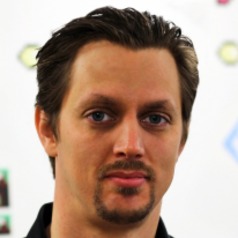
Bob De Schutter
Bob De Schutter (MA, PhD) is the C. Michael Armstrong Professor at the College of Education, Health & Society and the Armstrong Institute for Interactive Media Studies of Miami University (Oxford, OH). His interdisciplinary research and teaching interests include game design, the older audience of digital games, and the use of digital games for non-entertainment purposes. He has been invited to teach in Europe, North America and Asia, and his work has been published in leading publications of several academic fields. Bob has served industry as an independent consultant, web developer and entrepreneur, and has founded and chaired the Flemish chapter of the Digital Game Research Association. Prior to joining Miami University, Bob was a researcher and lead designer for the e-Media Lab of the KU Leuven (campus Group T), where he worked on games to facilitate inter-generational knowledge transfer, rehabilitate psycho-motor skills, train entrepreneurial skills, sensitize university students on urban mobility for the disabled, teach the psychology of game design, etc.
For more information about him, please visit his personal website at www.bobdeschutter.be.
Less ![]()
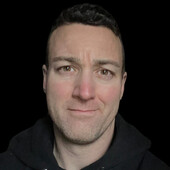
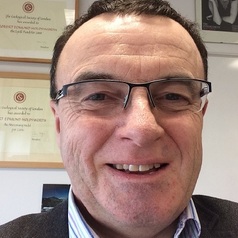
Bob Holdsworth
Professor of Structural Geology, Durham University
Bob’s main research interests lie in the study of the structure, mechanics and transport properties of weak fault zones using fieldwork, microstructure and rock deformation experiments. Together with Nicola De Paola and Stefan Nielsen, he has recently established the Rock Mechanics Laboratory in the Earth Sciences Department at Durham. He has also pioneered studies of fractured basement reservoirs and the role played by pre-existing structures in controlling crustal deformation patterns at all scales. His international expertise in these areas has led to significant industry funding for his research, most notably in work related to the Clair oil field, the largest remaining asset in the UKCS. He also provides expert advice to the nuclear industry (new builds, geological disposal of waste) and is a member of the Office of Nuclear Regulation (ONR) Expert Panel in Seismic Hazard and Climate Change, contributing expertise on reactivation and capable faulting in the UK.
Bob has published 174 peer-reviewed papers and has edited 12 books. Since 2001, he has obtained research funding in excess of £2.9 Million. He is a former Head of Department (twice) and NERC KE Fellow.
Less ![]()
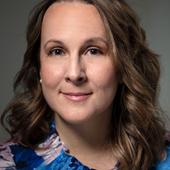
Bobbi-Lea Dionysius
Researcher and Sessional Staff, Griffith Film School, Griffith University
Less ![]()
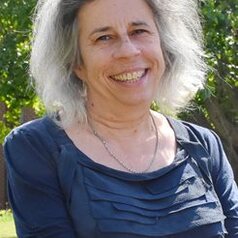
Bobbie Farsides
Professor of Clinical and Biomedical Ethics, Brighton and Sussex Medical School
Bobbie joined Brighton and Sussex Medical School as Professor of Clinical and Biomedical Ethics in 2006. She had previously held posts at the Centre of Medical Law and Ethics, King’s College London (Lecturer/Senior Lecturer 1996-2006) and the Department of Philosophy, Keele University (Lecturer 1986-96). She is a graduate of the London School of Economics (B.Sc Econ Government) where she also studied for her PhD under the late Professor Sir Maurice Cranston.
Professor Farsides has been involved in developing the academic field of Bioethics for over thirty years. Whilst at Keele she was part of the team that established innovative master’s programmes which continue to this day, and whilst at King’s she was part of the team delivering their highly successful MA in Medical Law and Ethics. As the Ethics team has grown at BSMS the opportunity arose to develop a new postgraduate offering and in 2021 BSMS will be launching its MA in Contemporary Bioethics.
Since joining BSMS Professor Farsides has been able to expand her activities in relation to global health issues and she is an active member of the Global Health Bioethics Network. She has supervised doctoral projects in The Gambia, Ethiopia and now in China, and has strong links to the ethics and public engagement teams in all the Wellcome Trust Major Overseas project sites.
As a long-standing member of faculty Professor Farsides sees an important part of her role as offering mentorship and support to junior colleagues, and she is an enthusiastic and committed mentor to a number of colleagues within BSMS, partner universities and beyond. She was Deputy Chair of the BSMS Research Ethics and Governance committee for ten years and served as Deputy Director, and then Director of Student Support.
Less ![]()
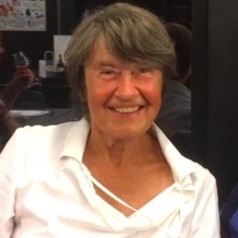
Bodil Folke Frederiksen
Associate Professor Emerita, Roskilde University
My broad teaching and research area is the interface between culture and politics in east and southern Africa. I research the localisation of media and global popular culture in east and southern Africa, consumption and representation and the role they play for identities and social and livelihood practices for social groupings, particularly young women and men. I am interested in the political and cultural articulations of disadvantaged groups, how they often happen through mobilisation in ‘uncivil’ social movements – they may be ethnic or religious – and may, in spite of their unregulated character, contribute to processes of democratic transformation. In this connection I study diasporic groups who are often extremely dynamic but also exposed to abuse and persecution. I highlight the work of local intellectuals, writers and artists and their contributions to the political and social atmosphere in specific places and periods. I have a side interest in popular culture in India and am committed to the study of development from below. Finally I research the history of sexuality in Africa.
Less ![]()
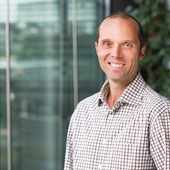
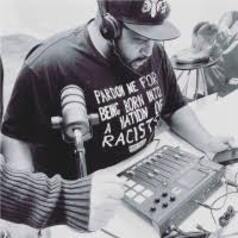
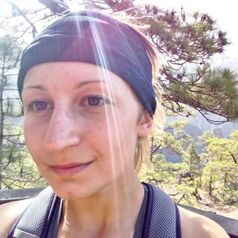
Boglarka Zilla Gulyas
Postdoctoral Research Associate in SCHARR, University of Sheffield
I come from a bioscience background, having completed an integrated MBiolSci degree in Plant Sciences at The University of Sheffield. Following this, I completed an interdisciplinary PhD focusing on the food security and health and well-being benefits of urban horticulture in the UK and global North, also at The University of Sheffield.
My interest in nutrition and health promotion led me to join the Section of Public Health of ScHARR, where I have held my current role as a Postdoctoral Research Associate since April 2023. My research focuses on the potential role of biofortified foods in improving nutrition in the UK, contributing to the H3 (Healthy Soil, Healthy Food, Healthy People) project. Prior to this, I worked as a casual research assistant on a couple of projects, and as a General Teaching Assistant in the School of Biosciences at The University of Sheffield, which allowed me to gain AFHEA status.
Less ![]()
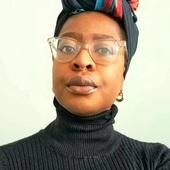
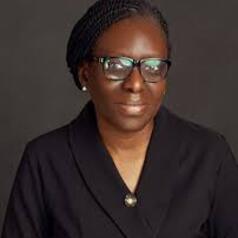
Bola Oboh
Professor of Genetics, Department of Cell Biology and Genetics, University of Lagos
Bola Oboh is a professor of genetics in the Department of Cell Biology and Genetics, Faculty of Science, University of Lagos. Professor Bola Oboh has a Ph.D in plant science at University of Ife, Ile-Ife with specialisation in plant breeding and genetics. She has attended training at the Alabama AM, University of Huntsville, Alabama, USA., Dorschkamp Institute for Forest and Landscape Planning, Wageningen. The Netherlands; University of Johannesburg, South Africa; Biotechnology Nuclear, Agricultural Research Institute (BNARI), Accra, Ghana and University of Northampton Alstraat, United Kingdom.
Her area of research includes population genetics, molecular biology, conservation biology and environmental biology. Professor Bola Oboh is a member of a number of scientific organisations. She is a reviewer for some scientific academic journals and external examiner to some tertiary institutions. She has been an assessor to different cadres of academic staff in polytechnics and universities. She has attended and presented papers at conferences both locally and internationally. She has published widely in accredited academic journals and (co-) supervises a number of doctoral and master’s students. She has with colleagues attracted research grants from University of Lagos, Step-B Innovators of Tomorrow (a World Bank project) and TETFUND.
Less ![]()
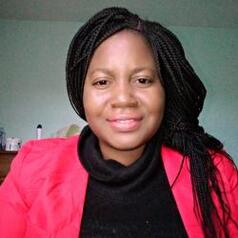
Bolaji Owoseni
Research Fellow in Black Heritage, University of Cambridge
I am an archaeologist from Nigeria with a focus on the archaeology of Yorubaland Nigeria, west Africa. I earned my BSc and MSc in archaeology from the University of Ibadan, Nigeria in 2010 and 2014 respectively. This was followed by a PhD in archaeology at the Sainsbury Research Unit, University of East Anglia, UK (2023). My research focuses on the deep time settlement history and the socio-political development of the Ilorin area, a historically significant city in north-central Nigeria, prior to the 19th century through material culture, mainly archaeological ceramics.
I have received a few grants and awards, some of which include the Sainsbury Research Unit PhD Grant (2019-2022) and the World Archaeological Congress conference grant, Kyoto Japan 2016.
I am currently a research fellow in black heritage or identity at the McDonald Institute for Archaeological Research, and by extension, a postdoctoral associate at the Jesus College, University of Cambridge.
Less ![]()
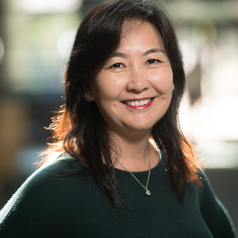
Bolormaa Purevjav
Researcher, Fellow, Institute of Asian Research, PhD candidate, Mining Engineering Department, UBC, University of British Columbia
Mrs. Bolormaa Purevjav has MBA degree from Griffith University Australia, and Mechanical Engineering degree from University of Technology in Brno, Czech Republic. She is an international development specialist with over 17 years of experience in project management, and evaluation, stakeholders’ engagement and empowering communities. Effective facilitator with a focus on results and innovation. Worked with UNDP, UNICEF, SIDA, SDC, GIZ, Government of Mongolia and the international NGO, Asia Foundation.
Currently she is a Fellow at the Institute of Asian Research, School of Public Policy and Global Affairs, Ph.D. candidate at the Mining Engineering Department, University of British Columbia. Research: Water management & governance, sustainable development, mining and community engagement, and gender.
Less ![]()
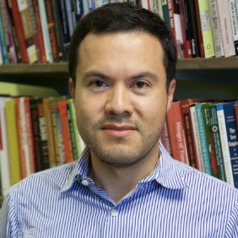
Bonar Hernández Sandoval
Associate Professor of History, Iowa State University
I am a historian of religion, politics, and social movements in Latin America. I received my Ph.D. in Latin American History from the University of Texas at Austin.
I am the author of "Guatemala’s Catholic Revolution," a book that chronicles the resurgence of Catholicism among Maya communities, employing a transnational approach that incorporates elite and popular notions of religiosity by drawing on documents housed in Guatemala, the United States, and the Vatican. It traces the emergence of progressive Catholic communities in Guatemala and beyond during the Cold War. My current research examines how Maya communities in rural, civil war-torn Guatemala developed a religious and political identity that drove the formation of several popular organizations. These groups became a nucleus for radical forms of activism, solidarity, and mobilization among urban and rural peoples. My articles and book chapters have appeared in several top-rated publications, including "The Americas," "The Oxford Handbook of Central American History," and "The Cambridge History of Religion in Latin America."
My research and training have been funded by various sources, including the Social Science Research Council, the Center for Latin American and Caribbean Studies at the University of Wisconsin, Milwaukee, and the Center for the Excellence of the Arts and Humanities at Iowa State University.
Less ![]()
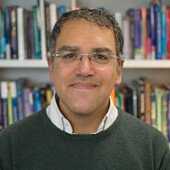
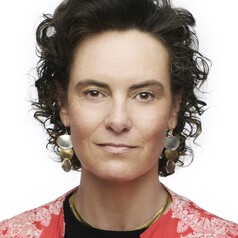
Bonita Meyersfeld
Associate Professor, University of the Witwatersrand
Bonita Meyersfeld is a human rights lawyer, academic and advocate. She is an associate professor at Wits School of Law School and an advocate at the Johannesburg Bar and the Pan African Bar Association of Southern Africa. From 2012 to 2017, she was the director of the Centre for Applied Legal Studies. She is the founder of Lawyers against Abuse, an NGO which provides legal and psycho-social services and representations to clients experiencing gender-based violence. She has appeared before the International Criminal Court, the Constitutional Court, the Supreme Court of Appeals and the High Court of South Africa. She has worked in various international NGOs and was a parliamentary legal advisor in the House of Lords in the United Kingdom. She was an editor of the South African Journal on Human Rights.
Bonita obtained her LLB (cum laude) from Wits and her masters and doctorate in law from Yale Law School. Bonita teaches and publishes in the areas of gender-based violence, business and human rights, and international law. She is the author of the book, Domestic Violence and International Law.
Bonita has consulted for, and presented expert statements to, various United Nations fora.
In 2018, Bonita was appointed Chevalier de l’Ordre national du Mérite (Knight of the National Order of Merit) by the President of France in honour of her academic and practical work in human rights and gender-based violence.
Less ![]()
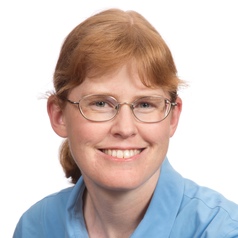
Bonnie Docherty
Lecturer on Law, Senior Clinical Instructor at Harvard Law School's International Human Rights Clinic, Harvard University
Bonnie Docherty is a Lecturer on Law and Senior Clinical Instructor at the International Human Rights Clinic at Harvard Law School. She is also a Senior Researcher in the Arms Division of Human Rights Watch. She is an expert on disarmament and international humanitarian law, particularly involving civilian protection during armed conflict. In recent years, she has authored several seminal reports in support of civil society’s campaign to ban fully autonomous weapons, also known as “killer robots.” Since 2001, she has played an active role, as both lawyer and field researcher, in the campaign against cluster munitions. Docherty participated in negotiations for the Convention on Cluster Munitions and has promoted strong implementation of the convention since its adoption in 2008. Her in-depth field investigations of cluster munition use in Afghanistan, Iraq, Lebanon, and Georgia helped galvanize international opposition to the weapons. Docherty has documented the broader effects of armed conflict on civilians in several other countries and also done research and advocacy related to incendiary weapons. Docherty received her A.B. from Harvard University and her J.D. from Harvard Law School.
Less ![]()
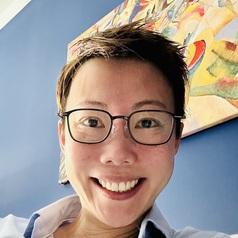
Bonnie Pang
Associate Professor, University of Bath
I am an interdisciplinary social researcher and specialise in the sociology of Chinese diasporas and qualitative research methods as they pertain to diversity and inclusion in sport and health.
Less ![]()
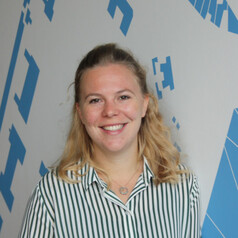
Bora Lancee
Researcher, Utrecht University
Bora Lancee obtained her doctorate from the Utrecht School of Economics at the beginning of 2023. She specialized in experimental and behavioral economics, with a particular focus on the role of attention in decision-making. She is currently a researcher for the Dutch Inspection of Education and is affiliated as a researcher with Utrecht University.
Less ![]()
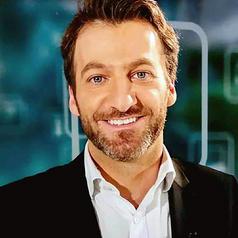
Boris Hansel
Médecin, Professeur des universités- Praticien hospitalier, Inserm U1148, Faculté de Santé, Université Paris Cité
Le Pr Boris Hansel est Professeur des universités en nutrition à l'Université de Paris (UFR de médecine Paris Nord), et endocrinologue. Il exerce à l’Assistance Publique des Hôpitaux de Paris (AP-HP), au sein du service de diabétologie, endocrinologie et nutrition de l’hôpital Bichat - Claude Bernard. Il codirige avec le Pr Patrick Nataf le Centre de responsabilité Santé Connectée (CRSC) de l'hôpital Bichat (AP-HP, Paris) et le Diplôme Universitaire de santé connectée de l'université Paris-Diderot (http://www.medecine-connectee.fr).
Boris Hansel anime également la chaîne PuMS, l’émission santé universitaire grand public à retrouver à cette adresse : www.pums.fr et sur Youtube (https://www.youtube.com/pumsuniv/).
Less ![]()
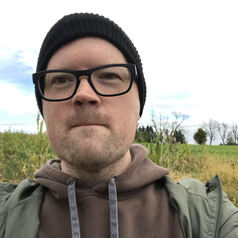
Boris Heersink
Associate Professor of Political Science, Fordham University
I am an Associate Professor in the Department of Political Science at Fordham University. My research focuses on American political parties and election campaigns. I am the author of National Party Organizations and Party Brands in American Politics: The Democratic and Republican National Committees, 1912-2016 (Oxford University Press, 2023) and the co-author of Republican Party Politics and the American South, 1865-1968 (Cambridge University Press, 2020). My articles have been published in journals such as The Journal of Politics, Political Analysis, Perspectives on Politics, Studies in American Political Development, and Political Behavior. I teach courses on American Political Parties, Campaigns and Elections, The US Congress, and American Political Institutions.
Less ![]()
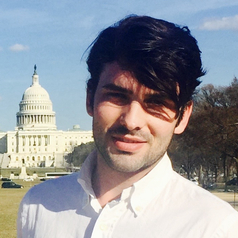
Boris Vazquez-Calvo
Profesor Ayudante Doctor en didáctica de la lengua extranjera (inglés), Universidad de Málaga
Soy profesor de didáctica de la lengua extranjera - inglés en la Universidad de Málaga, España, e investigo sobre aprendizaje de lenguas, cultura digital y prácticas lingüísticas que realizan los fans o aficionados a productos de la cultura popular contemporánea, como series de televisión, libros de literatura juvenil o videojuegos. En concreto, estudio cómo los adolescentes y los jóvenes (y no tan jóvenes) como los fans usan y aprenden lenguas y construyen identidades de múltiples maneras. Me suelo centrar en estudiar estas prácticas de los fans en contextos de interacción social en línea, mediante tecnologías digitales. También me interesan los videojuegos y su aplicación al aula de lenguas, el uso de tecnologías digitales en general para aprender lenguas y las nuevas maneras de comunicar que proliferan en internet.
Less ![]()
- Market Data





















